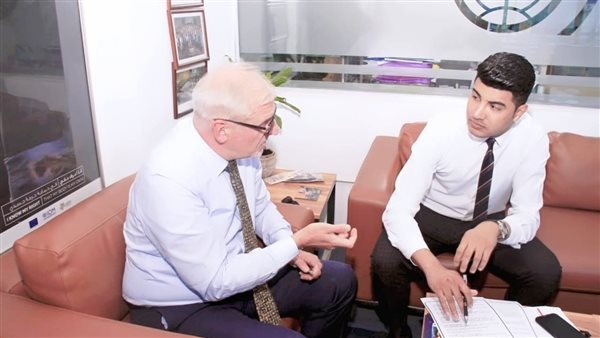IOM Chief in Egypt divulges wide scope of modern-day slavery

Chief of the mission of the International Organization for Migration (IOM) in Egypt, Laurent de Boeck, has revealed that most men who fall victim to trafficking are forced into labor.
Women, he said, are usually trafficked
for sexual exploitation.
He told Al-Bawaba News in an
exclusive interview that traffickers also exploit trafficked men and women in
the smuggling of arms and narcotics.
He revealed that more men are
trafficked than women around the world.
De Boeck explained that some of
those trafficked are forced into domestic labor, while most of them undergo the
experience of torture.
This, he said, can be called
modern-day slavery.
"Unfortunately, this type of
slavery is widespread in all countries around the world," de Boeck said.
He added that no country is immune
from this type of slavery, including most European countries.
He referred to cases of domestic
workers being detained and handcuffed in basements.
"They undergo torture and
enforced labor," the IOM official said.
He added that girls are trafficked
in Albania, for example, to work in brothels and for sexual exploitation in countries
like Belgium, France and others.
He threw light on the different
ways to confront smugglers, referring to the special protocol of the United
Nations, which calls for the prevention of, protection against and
accountability of smugglers.
"We always educate citizens
because most of these smugglers are trusted by people," he said.
He said it is not easy to convince
people that they can fall victim to smugglers who trade them for material gain.
He added that the IOM launches awareness
programs, including by making videos and campaigns to spread knowledge of the dangers
of irregular migration.
"We also use all available
means to reach people and coordinate with all institutions," de Boeck
said.
He added that his organization also
works to spread awareness and culture among people and deals with their needs
to confront these risks.
The IOM chief of mission in Egypt
referred, meanwhile, to Egypt's human trafficking law for the years 2016 and
2010.
These laws, he said, help people
who fall victim to trafficking.
He added that the Ministry of Social
Solidarity currently has special places to accommodate such cases and provide
all means of assistance to them.







